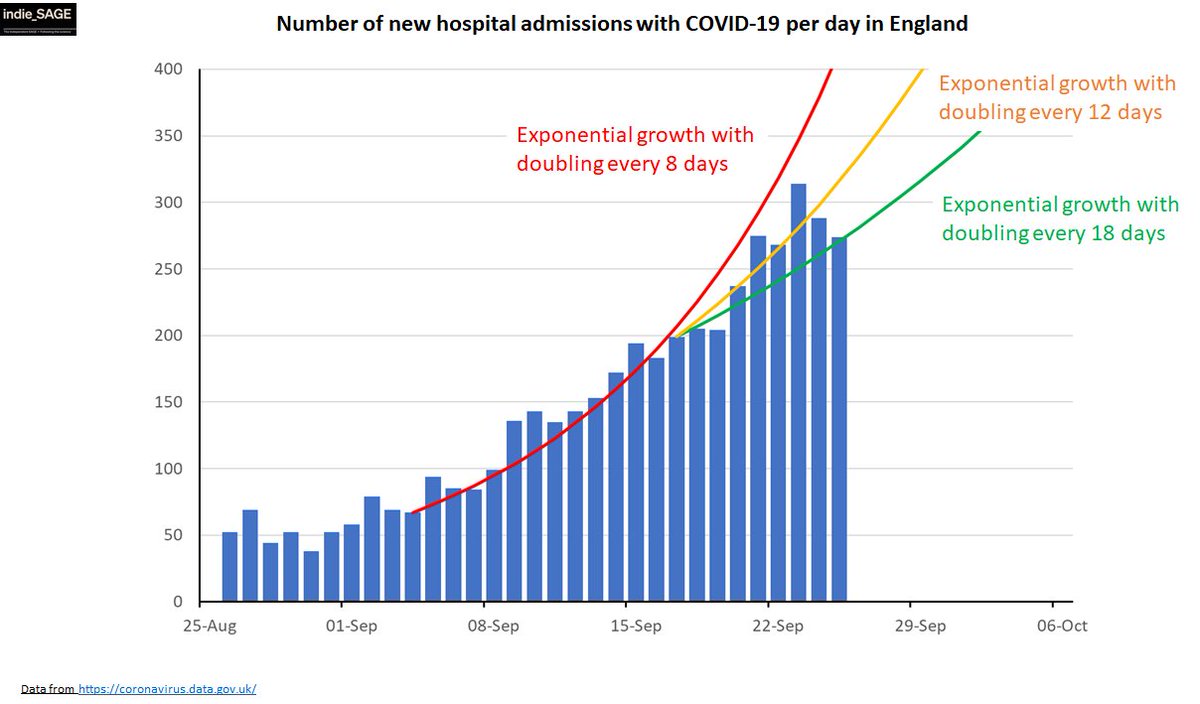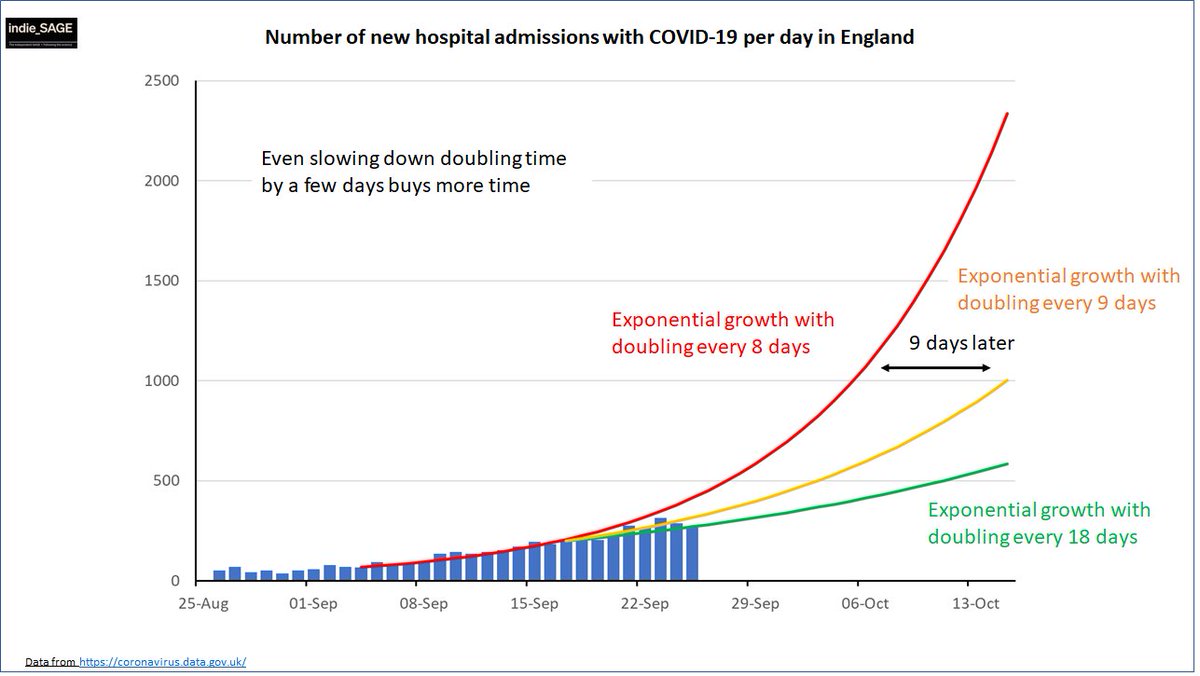THREAD: as requested by absolutely noone here are some thoughts on COVID-19, the UK and exponential growth... (it's a positive thread though!) 1/11
Infectious diseases by their nature have exponential growth while lots of susceptible people are around (still case in UK) as each person infects others. Left to its own devices, COVID-19 cases would double every 4 days or so. With knock on increases for hospital admissions 2/11
But we've not left COVID-19 to its own devices. We've done lots of things to slow the spread (social distancing, masks, rule of 6 etc). This slows down the *doubling time* (how long it takes for cases to double) - effectively giving us longer to bring down transmission. 3/11
Because restrictions & our behaviour change by the day, hard to say where we'll be in 4 weeks or 4 months. BUT we can say how many "doublings" we are away from "peak" as judged from the Spring. 4/11
We are currently between 270-310 admissions / day in England - that gives us about 6 doubling rounds to peak admissions (which were ~17,000). Ditto for intensive care. 5/11
At the beginning of September we were at about 8 day doubling. @ONS latest infection survey suggested this had slowed to as long as 3 weeks (!) but Covid Symptom tracker app is now doubling at 6 days.. wide variation! 6/11
Looking at recent hospital admission data it looks as if we've gone from doubling time of 8 days down to somewhere between 12-18 days - this is GOOD. Means that instead about 6 weeks from April peak we are more like 3 months 7/11 

As you can see just extrapolating out another month. It buys us between 9 and 26 *more* days to get to 1000 admissions/day (where we were pre-March lockdown) compared to 8 day doubling time! That is *massive*. 8/11 

The *more* we can make the doubling time longer, the longer we give the govt to fix testing & tracing and the easier it will be for test&trace to stop further growth (which lets us reduce restrictions), *and* the fewer people get sick & need hospital. 9/11
Currently it looks as if restrictions in a lot of the country might be having an effect in slowing growth. Restrictions + our own behaviour can continue that slowing. Ideally we would halt growth completely and bend it back down. 10/11
We might need test & trace back to really reverse the trend (at least without more restrictions), especially as we start to see impact of uni & school transmission or more cases among elderly. BUT let's keep doing what we can *right now* cos it can make a BIG difference. 11/11
• • •
Missing some Tweet in this thread? You can try to
force a refresh























